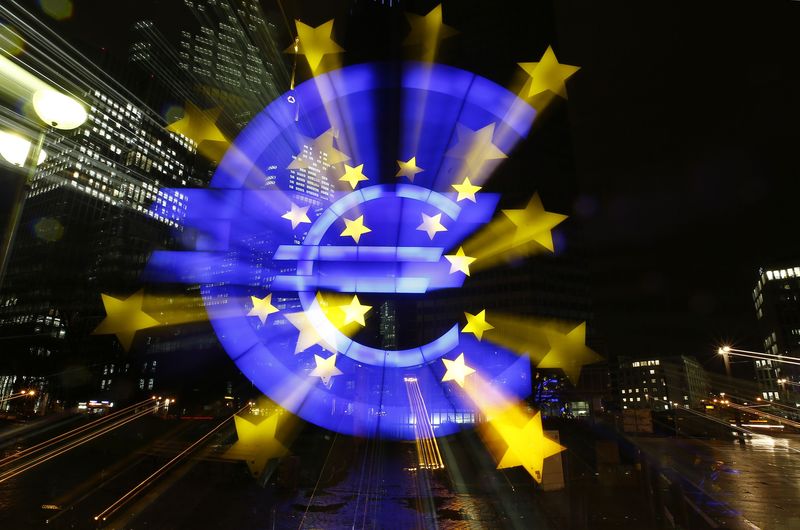By Balazs Koranyi and Francesco Canepa
FRANKFURT (Reuters) - The euro zone's economy is continuing to hum along but growing global trade tensions are starting to take their toll on the morale of consumers and entrepreneurs, data showed on Thursday.
The euro area has seen five straight years of economic expansion, fueled by massive stimulus by the European Central Bank and an upturn in the global economy.
Clouds have been forming on the horizon, however, as the United States and China threaten to unleash a global trade war while worries about Italy's public finances have rattled investors.
For now, banks in the euro zone are keeping the money taps open, with the pace of growth in credit to households and companies rising to another post-crisis high in August, ECB lending data showed on Thursday.
But sentiment indicators from the European Commission laid bare growing unease among industrialists, who have revised down their production expectations this month, and consumers, who are growing less optimistic about their financial and employment situation.
A broader index of economic sentiment fell for the 9th straight month in September and fell short of economists' expectation.
U.S. President Donald Trump's administration has imposed tariffs on steel, aluminum and various Chinese products, triggering retaliation from Beijing.
The ECB warned that an expanding trade conflict among major economic powers could weigh on sentiment further.
"In the near term, global economic momentum is expected to moderate," the ECB said in a bulletin.
"Further tariff increases and uncertainties about future trading relations are likely to weigh on global economic momentum going forward," it added.
Germany's leading economic institutes also said any escalation of trade friction involving the United States could cause a major recession in Germany and Europe.
GROGGY MOOD
European share markets and the euro both were taking a tumble on Thursday as Italy's new government struggled to contain a fierce internal battle over fiscal policy, compounding an already groggy global mood after the third U.S. interest rate rise of the year.
Unlike in 2012 and 2015, when the ECB intervened to claw the euro zone back from the brink, this time the central bank may have a harder time coming to the rescue.
Price growth in the euro zone, the ECB's sole official goal, is slowly heading toward its target of almost 2 percent, and the institution has laid out plans to tighten the purse strings.
It intends to end its 2.6 trillion euro ($3.05 trillion) bond-buying program at the end of this year and even expects to raise interest rates from their current, record-low levels in late 2018.
Inflation data from the German states of Hesse and Bayer (DE:BAYGN) on Thursday confirmed price growth in the euro zone's largest economy was likely on the up, suggesting the ECB's hands may be tied.
"The ECB has very limited room to accommodate these problems, and some of these (global) dynamics support the ongoing euro area inflation recovery," Peter Chatwell, an analyst at brokerage Mizuho, said.
($1 = 0.8538 euros)
